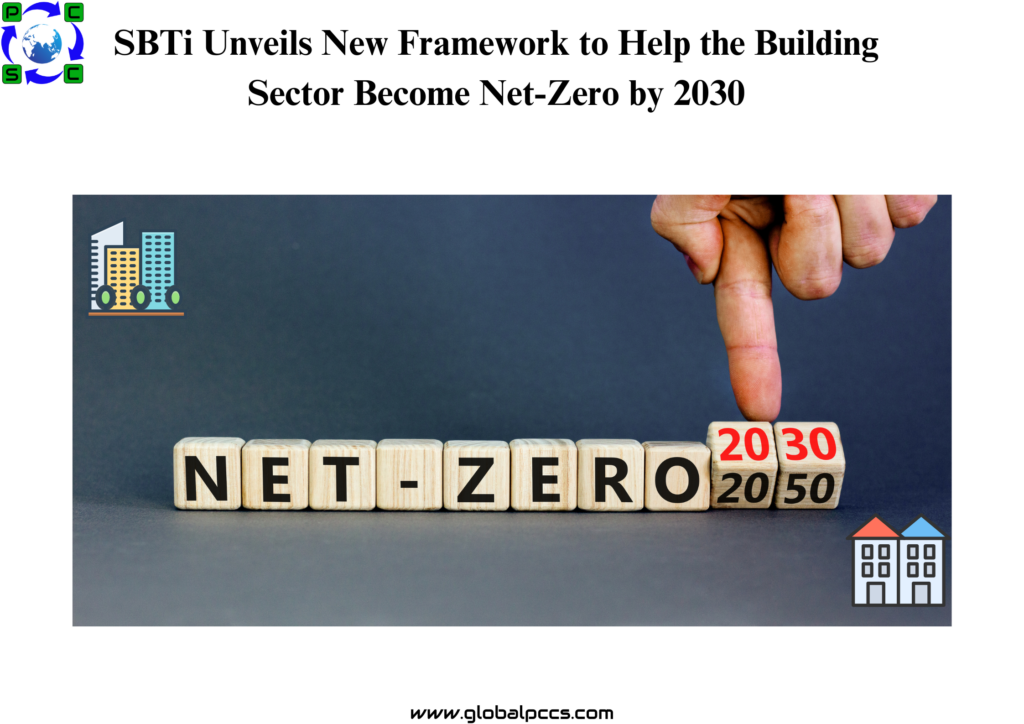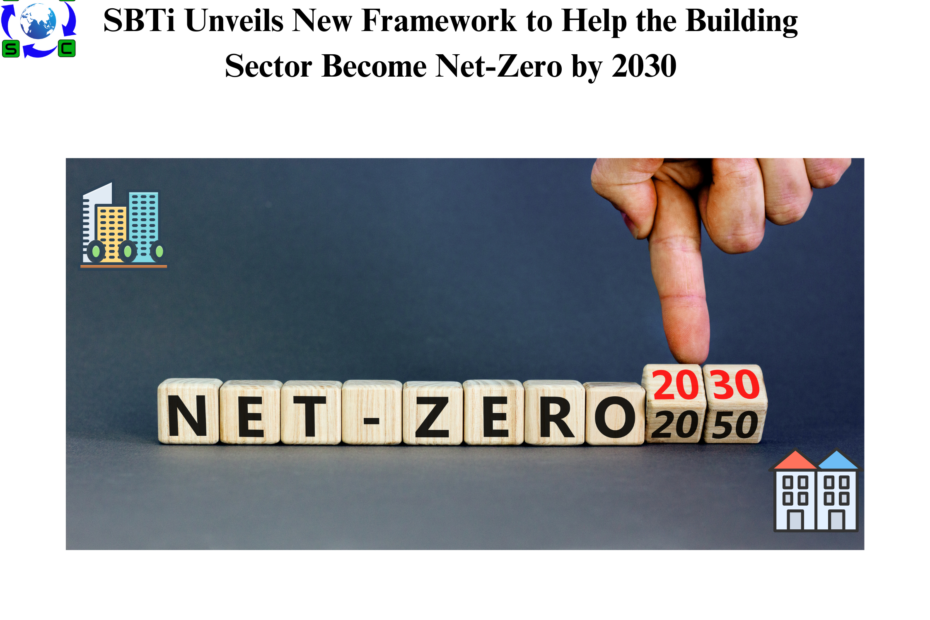
- Required Action: By 2030, there must be no new fossil fuel installations and a 50% decrease in emissions.
- Extensive Coverage: The framework takes into account emissions that are both embodied and operational.
- Professional Cooperation: created in collaboration with business leaders, guaranteeing a realistic strategy to decarbonization.
In order to bring the construction industry into line with worldwide net-zero standards, a new decarbonization framework has been proposed by the Science Based standards initiative (SBTi). With the aim of encouraging businesses and financial institutions operating in the construction value chain to commit to eliminating all new fossil fuel installations and cutting their emissions in half by 2030, this complete framework has been developed.
The building industry is heavily influenced by climate change and accounts for over 25% of global energy-related emissions; delays in construction caused by extreme weather have already cost billions of dollars worldwide. By establishing objectives for emissions reduction that are in line with 1.5°C, the SBTi’s criteria provide a scientifically grounded approach to mitigating these issues.
Key Requirements for the Buildings Sector:
- Stop Fossil Fuel Installations: By 2030, organizations must make a public commitment to stop installing systems for hot water, electricity production, cooking, and heating that rely on fossil fuels.
- Lower In-Use Operational Emissions: Building energy use is the source of these emissions. With the help of the Carbon Risk Real Estate Monitor (CRREM), the SBTi has created region-specific in-use emission reduction strategies that take into account regional differences in power systems and building usage
- Reduce Embodied Emissions: Most of the world’s growth is predicted to come from emerging nations, with a 15% increase in floor area worldwide by 2030. Reductions in emissions from manufacturing, transportation, and building are mandated under the framework.
- Retrofit Inefficient Buildings: In order to achieve the International Energy Agency’s Net Zero by 2050 Scenario, retrofitting existing buildings—which will make up 80% of the building stock by 2050—must more than quadruple by 2030.
The SBTi Buildings Criteria are an important step forward as the world deals with the urgent problem of climate change. Companies can drive the transformation of the construction industry and contribute to a more resilient and sustainable future by setting and meeting science-based objectives.








 Authorised IMDS & CDX Training & Consulting partner for
Authorised IMDS & CDX Training & Consulting partner for





